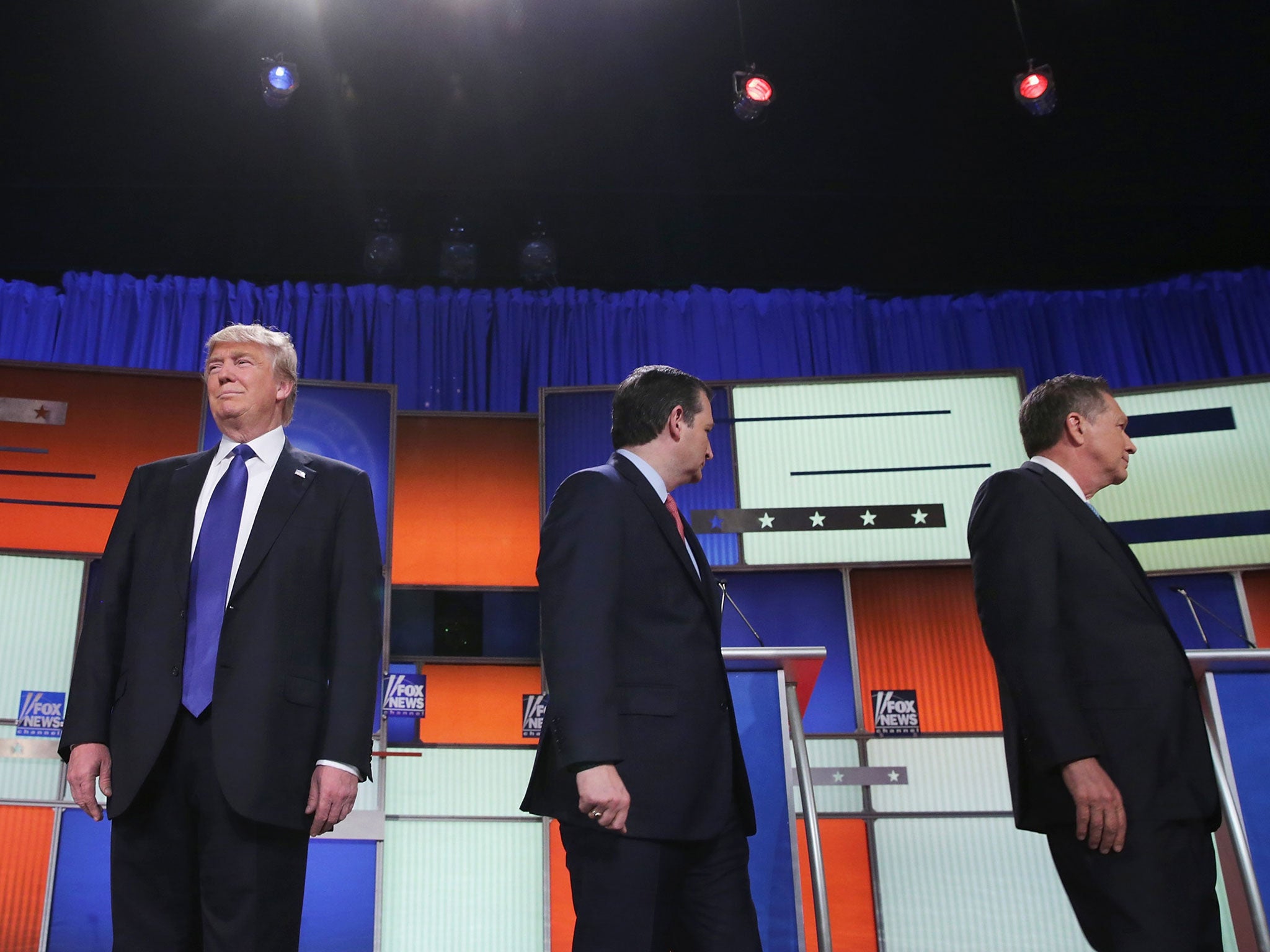You might not believe it, but Jeremy Corbyn’s Labour and the Republican Party are actually very alike
Labour must remember that no political party is built on a pure consensus; they are coalitions of only broad agreement

Your support helps us to tell the story
From reproductive rights to climate change to Big Tech, The Independent is on the ground when the story is developing. Whether it's investigating the financials of Elon Musk's pro-Trump PAC or producing our latest documentary, 'The A Word', which shines a light on the American women fighting for reproductive rights, we know how important it is to parse out the facts from the messaging.
At such a critical moment in US history, we need reporters on the ground. Your donation allows us to keep sending journalists to speak to both sides of the story.
The Independent is trusted by Americans across the entire political spectrum. And unlike many other quality news outlets, we choose not to lock Americans out of our reporting and analysis with paywalls. We believe quality journalism should be available to everyone, paid for by those who can afford it.
Your support makes all the difference.Both The Republicans and Labour are in the throes of identity crises. Here’s what Labour can learn from the failures of the American right.
After eight years of a Democratic presidency in the US, The Republican Party should be benefitting from electorate weariness with the incumbent, Barack Obama. Instead, Obama’s approval ratings have been improving, from a mid-term low of 40% to 52% currently, while The Republicans’ likely candidate, Donald Trump, is languishing on 31%.
Labour faces a similar problem. The Tories are in the midst of a very public internal feud over the EU, and they have faced a series embarrassing U-turns – on tax credits, disability benefits, the Trade Union Bill, child refugee policy and others – demonstrating a clear misperception of majority public opinion, not to mention David Cameron’s involvement in the Panama Papers scandal. Yet Labour has struggled to make meaningful ground, being just 1 percentage point ahead of the Conservatives on vote share in local elections last week.
Identity Crisis
On both sides of the Atlantic, there is an ongoing struggle to define the identity of each party. Both have faced insurgencies from their puritanical extremes, in the form of the likes of Ted Cruz and the Tea Party for The Republicans, and to a less extreme extent with the election of Jeremy Corbyn as leader for Labour. These insurgencies have sought to depose party establishments that were seen as unprincipled and treacherous. In both instances, the diagnosis of their parties’ electoral failures has been that they have been too compromising.
However, for those in Labour that take this view, they should ask themselves whether the reason that The Republicans have been out of office for so long is because they have not been right wing enough – the diagnosis of the Cruz caucus. I suspect the answer would be an obvious no. This should put into sharp relief Labour’s internal delusions about its own failures.
The Conservatives, as is plainly evident in the EU referendum campaign, have just as wide a range of views and just as many internal disagreements as Labour. The difference is that the Conservatives accept disagreement, but choose to emphasise their common ground first and foremost. This is not the only lesson to be learned.
Learning from the Right
Labour should not be picky about where it finds its solutions. In a recent interview, Haley Barbour, a former chairperson of the Republican National Committee and former campaign manager for Ronald Reagan, had some important lessons for The Republicans, which Labour should also take to heart. “The guy that agrees with you 80% of the time is your friend and ally, not some 20% traitor. The purity caucus needs to remember that”, Barbour said. The political right is usually good at not being picky about which voters’ support it accepts; that’s a lesson for all parties.
But Labour must remember that no political party is built on a pure consensus; they are coalitions of only broad agreement. To win elections and serve the people that the party most wants to help requires more allies than adversaries, and seeking a more or less absolute concurrence of ideas, ideals and beliefs is a mistaken fantasy.
The Left of the Future
Sadiq Khan’s call following his election as Mayor of London for Labour to speak to everyone, Conservative voters included, shows the practicality that is needed. The same is evident in France, with the socialist economy minister Emmanuel Macron’s new political movement, “En Marche!” (Forward!), which calls for a coalition beyond current party political distinctions.
Evidently over the past few months no amount of Conservative self-destruction will automatically get Labour elected. Labour should rethink its alliances, and stop making traitors of political friends. That goes for both Corbynistas and Blairites.
Another of Barbour’s maxims rings true: “Purity is the enemy of victory”. Does it matter that a right-winger said it? It shouldn’t.
Join our commenting forum
Join thought-provoking conversations, follow other Independent readers and see their replies
Comments